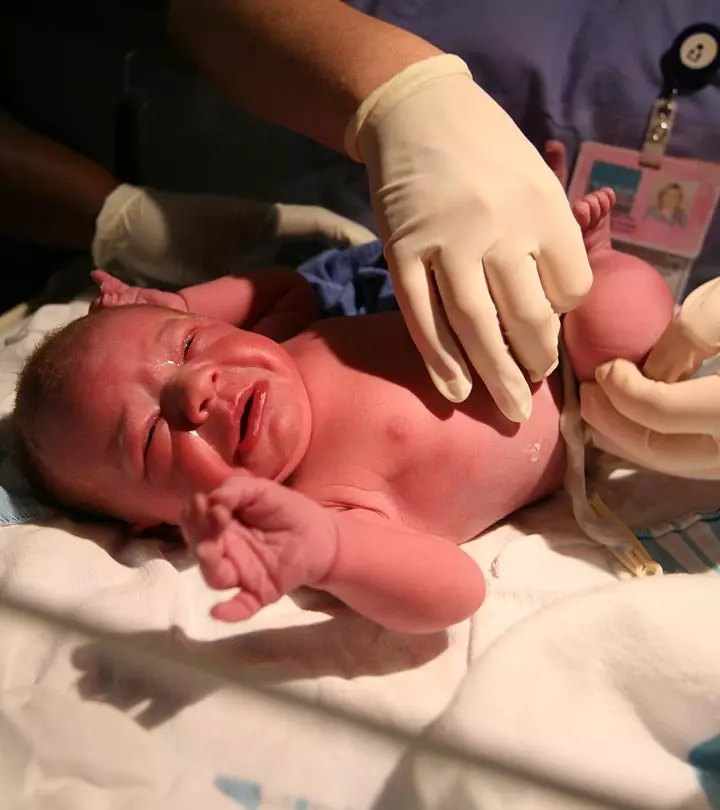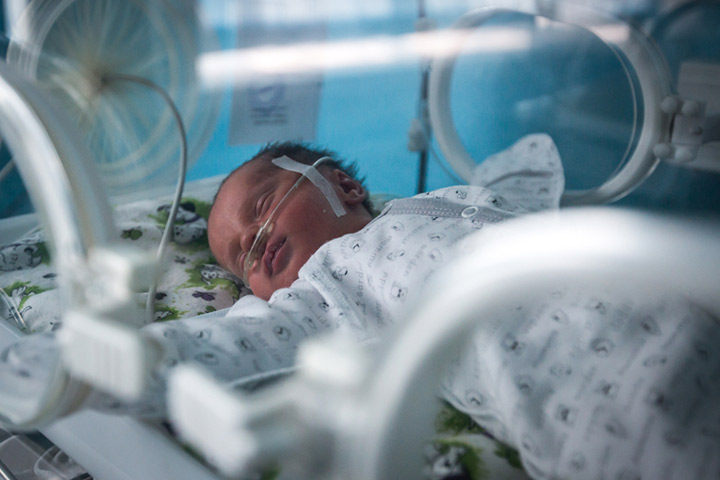
Image: Shutterstock
One wouldn’t ever remove a cake out of one’s oven before it’s fully baked, but what about that bun in your oven? In the case of some expectant mommies, the answer to this question is a confident “Yes!” In fact, roughly 10 – 15% of all registered births in the USA are actually ‘early elective deliveries’ (read: scheduled births carried out via medical induction or planned C-sections, without any medical cause, before the completion of the 39 weeks of gestation) (1).
However, according to the ACOG or American College of Obstetricians and Gynecologists, opting for an early elective delivery is extremely dangerous and risky for an unborn child, and expectant mothers are strongly advised against it. Traditionally, the pregnancy ‘term’ has always been defined as a duration anywhere between 37 to 41 weeks, which is the time frame that accounts for the full development of the child and culminates in spontaneous labor that arises without any external intervention.
But when expectant mothers opt for an early elective delivery, it could lead to certain complications for both the mom and baby, which aren’t usually encountered in naturally spontaneous deliveries (2). Due to this reason, several health experts and doctors refer to a baby born around the 37th to 38th week as an ‘early term.’
Now, if you happen to be suffering from a condition like diabetes or preeclampsia, where the risks of waiting for natural spontaneous labor outweigh the risks of opting for an early birth, it’s probably best to schedule an early delivery – something for which you must feel absolutely no guilt about. However, if you’re planning to, err, rush things about without any pressing medical cause, then it’s best you educate yourself about the risks associated with this journey.
Here’s a video created by the National Institute of Child Health and Human Development (NICHD) that cautions expectant mothers as to why choosing to induce labor before the 39 gestation weeks mark, during an otherwise healthy pregnancy, carries tremendous risk (3).
Credit: NICHDVideos [Youtube]
Wasn’t that very enlightening? Well, here are some of the risks of inducing labor before the 39th week of gestation explained in more detail:
1. It Puts The Newborn At Risk
According to a study published in the American Journal of Obstetrics & Gynecology, more than 25% of the babies born at around 37 – 39 weeks of gestation via an early elective delivery were found to require admission in the NICU (read: neonatal intensive care unit), for roughly 4.5 days at an average (4). In comparison, a mere 5% of babies who were delivered at 39 weeks of gestation or later required the same.
2. Issues With Brain Development
Infants that are born early and end up at the NICU can do so for a myriad of reasons, most of which revolve around immaturity. They could have difficulty maintaining a regular body temperature, suffer from low blood sugar, and also struggle with feeding as such babies tend to be much more smaller and weaker.
3. Breathing Problems
Lungs are usually the last of the organs to mature in a developing fetus, which is why babies who arrive too early are often reported to suffer from respiratory ailments (5). As a matter of fact, according to research published in the Journal of The American Medical Association, infants birthed at 37 weeks happen to be three times more likely to suffer from pneumonia, respiratory distress syndrome, and respiratory failure, as compared to babies born at 39 to 40 weeks.
4. Can Put The Mom At Risk
According to a study published in Obstetrics & Gynecology, first-time mommies who opt to induce their labor actually double their risk of needing a subsequent emergency C-section – one that usually results in a longer recovery time for the mother.
There are plenty of valid medical conditions that require an expectant mother to induce labor early or schedule a C-section. If you think you’re suffering from a condition that qualifies for such an arrangement, consult your doctor regarding the same.














